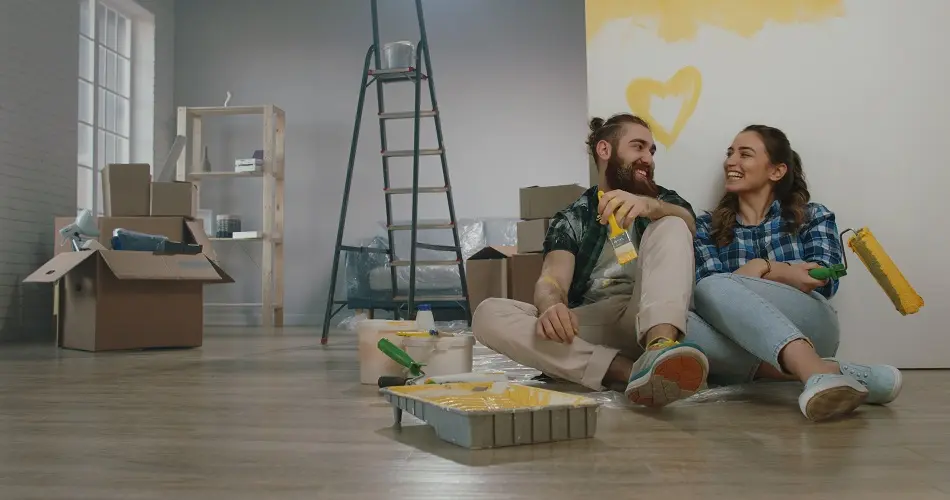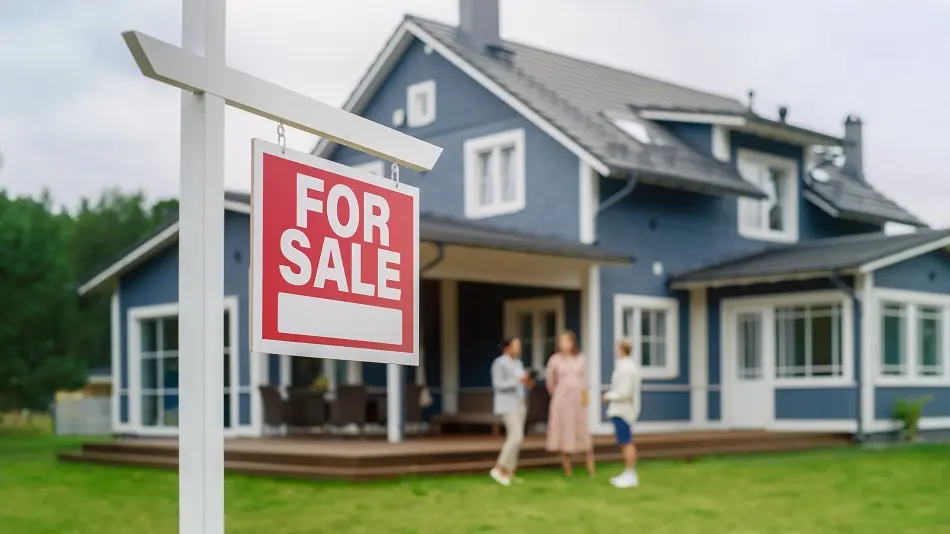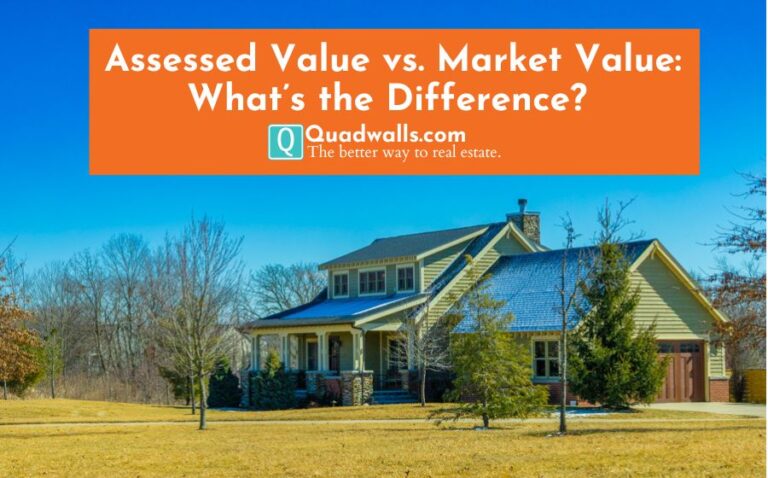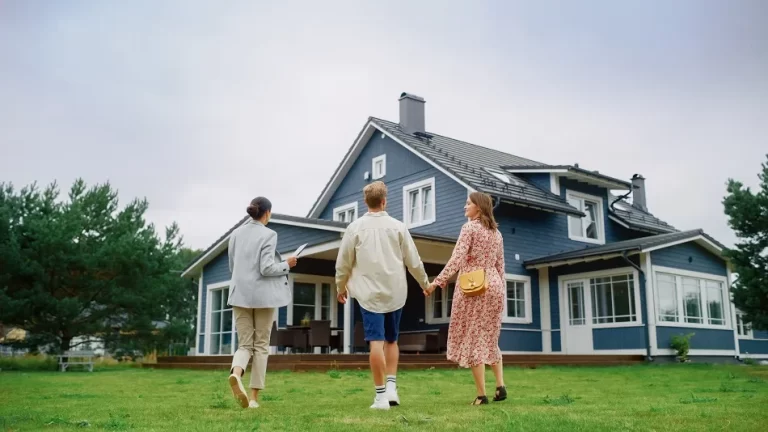Buying vs. Renting in Northwest Indiana: Which Is the Best for You?
There are pros and cons to buying a house. Owning a home delivers better long-term cost-control but also includes the responsibility of maintenance and locks potentially large amounts of money in an asset. On the other hand, renting is better for those on a budget. Let’s dive in more so you can learn what to consider when weighing to rent or buy a house in Northwest Indiana.
Factors to Consider When Choosing Whether to Rent or Buy a Home in Northwest Indiana
The answer to whether you should plan on buying versus renting depends on how the factors you are likely to confront affect you. When deciding whether to rent or own, you can familiarize yourself with Northwest Indiana real estate market trends for April 2024 as well as the steps of the homebuying process in Indiana, and consider the factors below.
But before we dive in, here’s a quick comparison of buying and renting a home in Northwest Indiana:
| Feature | Buying | Renting |
|---|---|---|
| Affordability | More affordable than neighboring Chicago. | Lower upfront costs (security deposit + 1st month’s rent). |
| Building Equity | Yes, with each mortgage payment, you gain ownership and equity in the property. Property value appreciation can increase your equity further. | No, rent payments contribute nothing to your net worth. They enrich the landlord. |
| Stability | More predictable housing costs with fixed-rate mortgages. Greater control over your living environment (renovations, personalization). | Less control over the property. Leases can expire, and landlords can choose not to renew. |
| Tax Benefits | May qualify for deductions on mortgage interest and property taxes (Recent tax code changes may have reduced these benefits). | No tax benefits for renters. |
| Upfront Costs | Down payment, closing costs, and other expenses can be a significant hurdle. | Typically lower upfront costs compared to buying. |
| Maintenance | Responsible for all repairs and upkeep. | Landlord is generally responsible for repairs and maintenance. |
| Flexibility | Less flexible – selling a home takes time and effort. | More flexible – moving is easier. |
| Investment Potential | Owning a home can be an investment, but returns are only realized upon selling. | Frees up capital for other investments. |
| Control | More control over the property – renovations, personalization. | Less control over the property – need landlord permission for changes. |
| Location | Tied to one location unless you sell the home. | More flexible – can live in different locations if needed. |
| Liquidity | Equity is tied up in the property unless you sell or refinance. | More liquid – frees up cash for other uses. |
Tax Implications
The measurable tax benefits of owning a home have actually been reduced in recent years. Due to the increase in the standard tax deduction, fewer and fewer homeowner taxpayers are able to itemize their income taxes. This means that owning a home doesn’t provide as much relief at reducing taxable income as it once did.
Additionally, many of the homeowner tax deductions are related to having a mortgage which might be something you want to avoid.
Financial Risks to Consider

Before deciding if you should sell your house and rent, you need to understand the financial risks of renting or owning a home. Let’s start by looking at renting.
The financial risks of renting a home are generally limited to the risk of rising rent rates. Landlords will increase your rent based on the market opportunity for the home you are renting. If your income is unable to keep up with these increases you may have to change your quality of life just to meet the monthly rent costs.
On the other hand, when buying a home, there are many types of financial risks. First, if you get a mortgage, you must pay the monthly payment. Additional financial risks include the rising cost of insurance and property taxes. Lastly, it’s up to you to make repairs which can be costly.
An Investment Opportunity
Owning a home is an investment, but only to a certain degree. We all need to live somewhere. Due to this, although ownership offers a return, that return is only realized upon selling the home. At that time, you’ll face the new problem of where you’ll live. You should significantly minimize recognizing any investment potential of owning a home when deciding whether to rent or own it.
Cashing Out and Liquidity
As a tenant, you could invest more of your cash in cash-flowing investments which deliver a return. You can live to some degree off of this. Having hundreds of thousands of dollars locked up inside of a home isn’t the best use of money, especially if you need that money to deliver a return in order to maintain a certain quality of life.
The Advantages of Buying a Home in Northwest Indiana

Homeownership at any stage of life has certain economic and quality-of-life benefits. Let’s review those to help you decide if any of those are meaningful enough to help you answer the question of whether to rent or buy a home in Northwest Indiana.
Affordability
Compared to neighboring Chicago, Northwest Indiana offers generally lower home prices, allowing you to stretch your dollar further and potentially own a larger home. In general, Indiana boasts some of the most affordable housing options in the U.S. The typical home price in most major cities falls well below the national average of $417,700, often coming in under $250,000, with the average Indiana home value in 2024 being $231,533.
Building Equity
With each monthly payment on a mortgage, you build more equity in the home you own. Also, real estate appreciation lowers the loan-to-value ratio increasing your overall wealth. However, the equity is trapped in the home and cannot be unlocked unless the home is sold or refinanced. On the other hand, when renting, there is no return on any of the rent payments.
Renovation

Homeowners are free to renovate, remodel, and redecorate their homes to their desires. When renting, a tenant must frequently ask permission from the landlord in order to make changes to the property. Any changes made will likely be minimal, though. Landlords are nonetheless required to allow a tenant to make reasonable changes to a property in line with ADA guidelines.
Stability
Homeownership provides people with stability. Stability is one of the top reasons people want to find and buy a home. Stability is very important to the overall quality of life. It is hard to feel stability as a renter due to the fact you are heavily limited in what changes you can make to the property. Additionally, you may have very transient neighbors if renting in a complex.
Tax Benefits
There are tax benefits to being a homeowner. However, many of these tax benefits are related to income deductions or tax credits due to the costs of maintaining a mortgage. Therefore, you must be in debt to benefit from many of the homeownership tax benefits. Additionally, recent changes to the tax code, specifically, the increase in the standard deduction, have made these benefits ineffective.
The Drawbacks of Buying a Home in Northwest Indiana

Although the merits described above are convincing enough, it’s useful to be aware of the consequences that come with buying your own property. Sometimes the benefits just don’t outweigh the negatives that you’ll experience.
Fixed Location
As long as you have plans to travel about the country or a portion of the country, the responsibilities of homeownership will keep you tethered to one area to some degree. If you hope to freewheel it, owning might not be the best option for you.
Less Financial Liquidity
With a home, tens of thousands and even hundreds of thousands of dollars are effectively trapped in the house. Yes, there are financial instruments to help you access your home equity. However, for each of those you will need to qualify. If your earnings get reduced for some reason, qualifying for credit can become more difficult. Because of this, keep in mind when buying a home that a large dollar amount of resources will be trapped in the value of your property.
Maintenance Tasks and Repairs
Some homebuyers, such as retirees, typically want to find a home for sale with low maintenance. Maintenance tasks take time and ability to complete the task. For those who can’t, you will pay someone to do it for you. Additionally, everything wears out in time. When deciding whether to rent or buy a home, think about how able you will be to complete maintenance tasks and pay for repairs.
The Advantages of Renting a Home in Northwest Indiana

Renting can be an overlooked option, yet there are real benefits to this alternative to owning.
Open Options
Renting simply offers more options. Everywhere has places to rent. One year you could live in Texas and the next year live in Delaware. Yes, you can do that as a homeowner, too, but it is a lot easier as a renter. Renting is more fluid and a smaller commitment. Additionally, different rental communities may offer different amenities – secured entry, laundry facilities, etc.
Lower Cost Overall
Looking short to medium-term, renting is often cheaper than owning. This is due to the fact renters are free from the extra costs of maintenance and repairs. Even just one costly repair for a major component of a home can make a renter years ahead of an owner regarding housing costs.
Less Maintenance
It makes sense to rent if you want to avoid completing home maintenance tasks. For example, as you get older, you might not want to be cleaning gutters, pushing your lawn mower, or shoveling snow. Renters don’t need to worry about tasks.
Freed-Up Capital
Renting can make sense if you want to keep more of your cash invested in cash-generating investments. The money trapped in the equity of an owned home is incredibly unproductive. Also, with more cash options at hand, you might find it easier to live the lifestyle you want.
The Drawbacks of Renting a Home in Northwest Indiana

Renting isn’t all positive. When deciding if it’s better to rent or own property, it’s important to recognize the negatives you can expect to have as a renter.
Close Neighbors
Renting in an apartment complex and even in many neighborhoods where single-family home rentals are present often means neighbors very close to you. If you love your privacy of lavish quiet and solitude, renting might not be the best option for your housing plan.
Relying on Your Landlord
Some landlords are excellent at quickly addressing problems with the property or tenants. On the other hand, some landlords are difficult to work with and let problems get worse. Regardless, as a tenant renting a home, you’ll be at the mercy of either a proactive, responsive landlord or one who lets things go.
Rising Rent Costs
Unfortunately, you should be prepared for rent increases. Everything gets more expensive as time goes on. This can be especially difficult for tenants on a fixed income. If your income cannot cover rent increases over time, renting might not be the best option for you.
Rent vs. Buy in NWI (Considering Rent Growth): Calculations
Here’s an analysis comparing buying and renting a house in Northwest Indiana in the shorter and longer terms.
Assumptions
- Rent cost: $1,000 per year (Year 1)
- Rent growth rate: 2% annually
- Buy cost: $20,000
- Property appreciation rate: 3% annually
- Property taxes: 1% of property value annually (estimated)
Calculations
5-year timeframe – total rent cost with growth:
| Year | Rent Cost |
|---|---|
| 1 | $1,000 |
| 2 | $1,020.00 |
| 3 | $1,040.40 |
| 4 | $1,061.21 |
| 5 | $1,082.43 |
| Total | $5,204.04 (approx.) |
Opportunity cost of buying (assuming selling after 5 years):
- Property value after 5 years: $20,000 * (1 + 0.03) ^ 5 = $26,010 (approx.)
- Opportunity cost: $26,010 – $20,000 – $5,204.04 = $805.96 (approx.)
15-year timeframe – total rent cost with growth:
- Calculate year-by-year or use a financial calculator.
Opportunity cost of buying (assuming selling after 15 years):
- Property value after 15 years: $20,000 * (1 + 0.03) ^ 15 = $33,103 (approx.)
- Opportunity cost: $33,103 – $20,000 – Total renting cost (with growth) – Property taxes (total over 15 years) = ~$3,103 (approx.) – This considers estimated property taxes but neglects maintenance costs.
The Bottom Line
5 years: Based on the assumptions, renting might be a better option for a 5-year timeframe. The opportunity cost of buying is relatively low compared to the potential benefits of renting (e.g., flexibility, lower upfront costs, etc.).
15 years: Buying becomes a more attractive option over a 15-year horizon. The opportunity cost of buying increases significantly due to potential property value appreciation. However, remember to factor in additional costs of ownership like maintenance and property taxes, which can affect the overall benefit.
Note: This is a simplified analysis with general assumptions. Actual costs and appreciation rates can vary.
Conclusion
In reality, everyone has a unique situation. Renting a home in Northwest Indiana offers you the opportunity to live on a more fixed cost but at the whim and will of a landlord and the possibility of future rent increases. However, renting also frees up capital that can be used in more beneficial ways than being trapped in a home.
On the other hand, owning a home in Northwest Indiana does provide some type of return, but that return isn’t realized until you sell. At that time, you’ll be looking for a new housing solution. Homeownership also makes you responsible for maintaining the property and paying for any repairs.
In the longer term, buying a house in NWI is more beneficial than renting it.
Each person will have their unique circumstances which will make either renting or buying a home the better choice. We suggest you carefully weigh your options for each.
The Quadwalls real estate team has helped countless homebuyers purchase homes in Northwest Indiana successfully. It’s our belief that it’s better to purchase a home than it is to rent. Having a home allows you to build equity over time and gives you a sense of permanence and independence that renting simply doesn’t offer. Choose from the homes for sale in Northwest Indiana and feel free to contact us with your real estate-related questions or for any help with selling or buying a home.
 Updated: July 31, 2024
Updated: July 31, 2024  948
948  13 min
13 min











